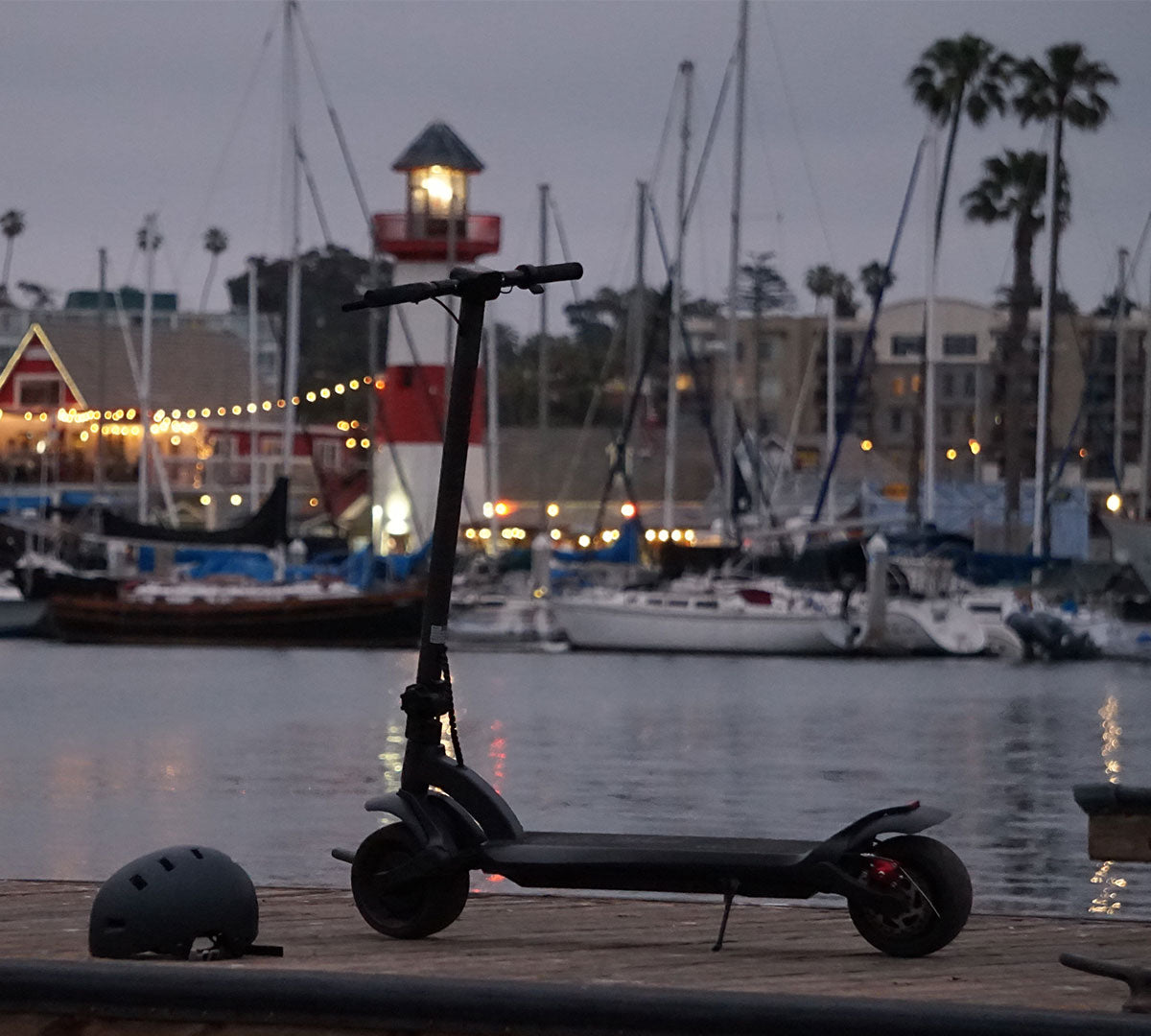How much does it cost to charge an electric vehicle?
- Read Time: 13 min
Answering the question above is not as easy as answering how much it costs to fill up your petrol or diesel powered car. Of this, we can be 100% certain. We know the cost as long as we know the fuel price per gallon or liter of fuel.
Charging an electric car or some other electric vehicle varies widely depending on what type of vehicle it is and what kind of battery capacity it has. Not to mention the price of electricity which can vary from day to day, country to country, and even state to state.
But if you know at least some of the variables, you can get an estimate that will be helpful enough to see if going electric can be for you.
Let's go through it and find out.
How Much Does It Cost to Charge an EV at Home?

Every month you need to pay your electric bill. The base price you pay for it is beyond your control as that is the stipulated electric rate. In the US, this rate can differ quite significantly depending on where you live.
The rates vary from as low as 10.35 ¢/kWh in Idaho to as much as 28.38 ¢/kWh in California.
The national average US residential electricity rate as of February 2023 is approximately 23 cents per kWh.
In other words, you need to know exactly how much the going rate is where you live.
The main reason for this variation is the differing fuel mixes each state has. In the Northeast, there is a heavy reliance on natural gas, a relatively expensive source of power which in turn produces a higher than average price for electricity.
More southern states rely on less expensive sources such as coal, nuclear and hydroelectric power, one of the cheapest ways to produce electricity.
The rates also vary throughout the year. States with a higher chance of extreme weather and more defined seasons can vary widely depending on the weather. As an example, during heat waves, the demand for air conditioning spikes prices. And when the demand is high, prices follow.
In Europe or at least within the EU members state, prices are more similar since the formation of the EU:s Energy Union cooperation. And those prices have skyrocketed after the invasion of Ukraine started.
Regardless of where you live, however, charging an electric car will always be more expensive than charging a smaller EV like an electric scooter or an e-bike.
The fuel efficiency of electric vehicles is measured in kilowatt hours per 100 miles. Therefore, calculating an EV:s cost per mile necessitates knowing the cost per kWh and the vehicle's efficiency to travel 100 miles.
Calculating the exact differences in charging costs between electric cars vs e-scooters and e-bikes is not so easy to do as there is a wide variation between makes and models. But there are calculations and programs that can do this. Using those it quickly shows that an electric car compared to an electric scooter or an e-bike, costs about 160 times more to charge each time.
The same calculators show that the cheapest to charge is the average electric scooter. E-bikes generally have bigger batteries than a smaller e-scooter but they do have a slightly lower cost per mile than the e-scooter. Although not by much.
Obviously, a car weighing so much more and needing much bigger batteries will never be able to compete with the efficiency and return on investment the electric scooter can offer per kWh basis.
And let's not forget, electric cars are very expensive. In some cases enough to make your eyes water. Calculating the purchase price into the cost per mile will produce another set of numbers entirely.
Fuel costs vs Electric vehicle costs
Even with rising electricity costs, it can still be a smart choice to go electric depending on the factors mentioned above and of course, how much and where you need to use your vehicle.
The e-scooter in particular is an incredible winner in this area. The average daily commute in the US is 41 miles (66 km) to and from work. And many travel shorter distances than that. If possible, choosing an electric scooter instead of a car can make a huge difference in the budget not to mention the time saved when you don't have to sit in traffic. It will be very difficult to beat the price per mile the e-scooter can produce compared to conventional cars.
Very good electric scooters are available from $300. If you up the budget to $1000 you have quite a few really good ones to choose from. The cost per mile including the purchasing price is unbeatable.
Public charging stations
Charging station. My kingdom for a charging station I hear you say. Yes, ev drivers and ev owners of cars need to change the way they travel. If you plan on going on long road trips with your electric car, you need to plan ahead and do some research. Public charging stations are not yet as readily available as petrol stations.
And be aware that charging on the road at a public charging station is more expensive than doing it at home. A 200 mile (322 km) trip using a level 3 charging station can cost between $10 and $30. Going longer than that you will have to charge it several times.
In fact, in the US as well as in Europe, the charging fees at commercial chargers are many times double or triple those you pay at home which also means that "fueling" costs vary much more for an electric car than a regular ICE (internal combustion engine).
Some of the reasons for this is that there are big variations in electrical power costs. Commercial charging stations rates can vary more than 50 % within the same network. Gas prices vary about 10% at the most and usually less than that.
Charging speed also varies depending on what type of charger it is, the ambient temperature, the status of the car's battery, and the status of the charging equipment itself. All these factors play into how long it will take to recharge your car.
Different pricing systems at commercial charging stations are another thing to consider making it trickier to compare. Typically some kind of combination of kWh per unit time as well as per session cost makes for a wide variety of charging costs when trying to calculate the kWh basis. I.e. how much you can charge for $1.
And lastly, there are three types of chargers as well.
- Level 1 is the slowest. It might take 24 hours to fully recharge your car on this.
- Level 2 is typically found at shopping centers and grocery stores. It can deliver a charge of up to 28 miles per hour. The cost typically varies from $1 to$5 an hour.
- Level 3, is the faster charging one, also known as dc fast charging stations (DCFC). In one hour you can fully charge your battery. The cost is usually from $10 to $30.
Tesla offers something called the Tesla Superchargers. This is a proprietary system of charging stations for Tesla owners. The cost varies depending on your location. The average cost per kWh is $0.25.
All in all, these variations make a long road trip in an electric car comparable and in some cases even more expensive per mile than gas powered cars.
For shorter trips and if you can rely on home charging, the overall cost per mile paints a very different picture. If you can get a nightly fixed hourly rate it might be very cheap to recharge your car. This is an option that many in Europe now choose as energy prices have skyrocketed.
Smaller PEVs such as e-scooters and e-bikes are much easier and cheaper to charge. A simple wall outlet will do. No need for a conversion system. At home, at work, maybe even in the coffee shop, and you're good to go. Ev charging was never easier.
Future of electric vehicles and charging costs
When it comes to the electric car, let's address the elephant in the room. Well, there is more than one actually but let's keep it to one for the moment.
They need to be charged and of course, this energy needs to come from somewhere. In fact, if everybody on the planet tomorrow, went ev only, where would all the electricity needed to charge them come from? We don't have a solution yet.
But we know that technology and science have a way of being able to come up with solutions that sometimes seem impossible even 10 years before. The more effective batteries and vehicles become the more cost effective it will be to charge them.
The one thing that would solve a lot of challenges is solar energy.
Solar energy and solar panels are very popular among house owners. Easy to understand as in some cases your house becomes more or less energy independent. Free energy. What's not to like?
Imagine if the same technology could be used on cars. The challenge has been, or rather still is, that solar panels, in order to be effective need to cover a larger area. A roof of a house is a big area and therefore the panels can produce plenty.
But science and technology are ever evolving and some car manufacturers are researching the possibility of solar panel driven cars. Toyota for instance, is working on a system that recharges the car while it's driving even.
If this can become a reality, the cost per mile will be more or less zero.
This technology has already been put to use on trucks. In 2018 a big logistics company in the UK fitted solar panels to the roofs of some of their fleet to produce electricity for operating tail lifts and air conditioning systems showing annual fuel savings of up to 5.2 %.
As you can see, calculating what it costs to charge an ev depends on a number of factors. The price needs to be a combined average of the investment in the vehicle, meaning how much it costs to buy, the kilowatt hour price, charging time, home charging, or public charging. It is easier to calculate what an ICE car costs as the fuel prices are similar whichever gas station you fill up at.
Driving your electric car shorter distances and charging it at home, at night, and avoiding public chargers will be the cheapest per mile, not including the cost of the vehicle itself.












